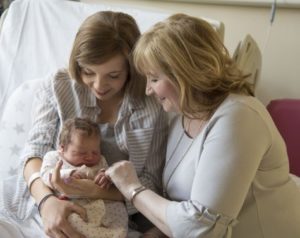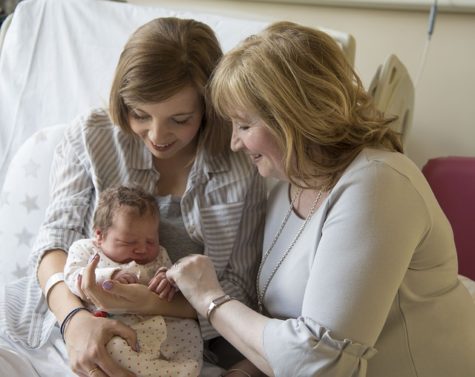HELSINKI, Finland — What many of us have long suspected is true: Becoming a parent really does alter family dynamics, especially with the in-laws. A new study shows that people with children experience more tension with their spouse’s parents than couples who have yet to enter parenthood.
Researchers at the Academy of Finland wondered what was behind the changes in family relationships — in terms of both closeness and conflict — once a couple has children. Their study helps explain why family members interact differently when a child enters the picture.

For their study, researchers looked at family-conflict information collected from 1,200 Finnish participants. They considered how often family members stayed in touch with one another and how emotionally close they felt toward one another.
Researchers were specifically looking at how well couples relate to their own parents or in-laws and how having children impacts intergenerational conflicts.
It seems that when children are added to a family, the in-laws begin to feel more of a direct kinship to the other side of the family. The ties that bind bring help to young parents, but also new conflicts.
Researchers determined that, for the most part, all participants experienced more disagreements with their own parents than with their in-laws. But for couples who became parents, the conflicts with their own parents were now met with additional conflicts with their parents-in-law.
Other studies have demonstrated that in-laws feel more “kin-like” once a grandchild comes along who creates a new “kin lineage.” This new little person makes adults who did not previously have this biological link feel more of a family bond — a “kinship premium.”
But with that closer relationship comes the inevitable flip side of the coin — a “kinship penalty.” The closer the connection between family members and the more kin-like the relationship, the higher the levels of conflict among all parties.
The biggest source of conflict comes when grandparents provide childcare, the authors say. Although very helpful, the degree of interaction involved is almost bound to lead to areas of disagreement.
“Daughters-in-law were more likely to report conflicts when their mother-in-law provided more grandchild care,” says Mirkka Danielsbacka, the study’s senior researcher, in a media release. “This indicates that the increase in conflicts between in-laws are related to grandchild care.”
Researchers say the conflicts arise because grandparents begin to see themselves in an expanded role, sort of like investment bankers. In this case, though, the investment is in the future of the offspring.
It seems that everyone in the family agrees on one thing: the importance of raising the next generation. The conflicts arise in the “how.”
Researchers conclude that the concept of “shared relatedness” that comes through biological kinship to a grandchild also makes the in-law relationship “more like kin” in every other way, including family feuds.
The study’s complete findings were published in Evolutionary Psychological Science.
